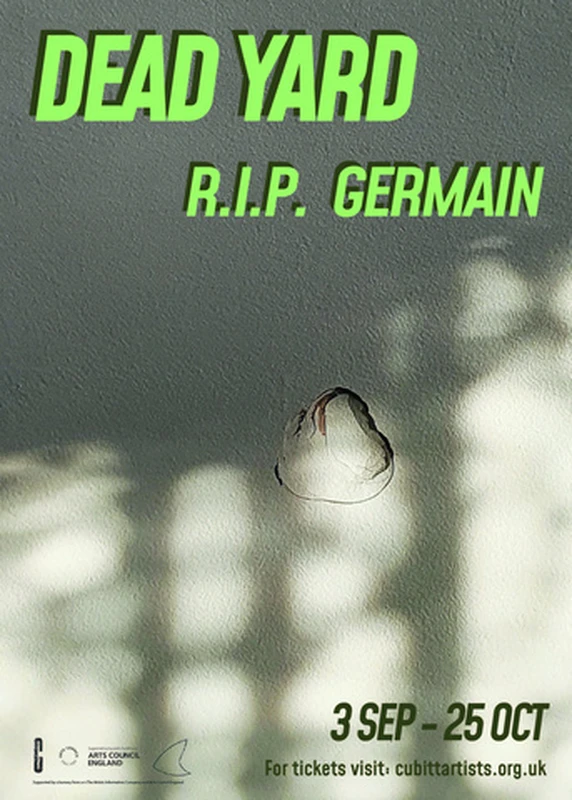R.I.P. GERMAIN : DEAD YARD
3 Sep-25 Oct 2020


R.I.P Germain’s Dead Yard explores multiple forms of death and mourning relating to the artist's personal experiences and the ongoing viscerality of Black life in the UK. In addition to literal explorations of death and mourning, the exhibition gestures towards psychological and philosophical types of death: ego death, social death, and the mourning associated with incarceration, martyrdom and near death experiences. Dead Yard invites audiences into a space for listening; for Sonny, Lloyd and Imarl, for Daniel, Damien, Becky, Josh and Alicia; for those lost without names and for those yet to be lost; a space for grieving, mourning and ritual. Across 4 main works, including a durational sound work and sculptural installations, R.I.P. Germain honours those he has personally lost, lamenting the various ways in which Black people are denied the right to mourn, even as we are forced to confront death and dying in a world aggressively indifferent to our safety. With intricate detail, Dead Yard redresses our collective relationship towards death in multiple forms. Audiences are invited to engage with the works, which pay respect to Caribbean mourning rituals: an altar of objects to ponder; perhaps a game of dominos; a library of radical literature from which to learn and question. R.I.P. Germain is an interdisciplinary conceptual artist, archivist, lecturer and mentor. He focuses on disentangling the inner and outer wars that pertain to the Black male, through essays, interactive audiovisual installations and performances. His first solo exhibition Gidi Up was exhibited at Peak Gallery in 2018, and he presented Double 6, a collaborative performance alongside Ashley Holmes, in the former courtroom at Leeds Town Hall, commissioned by Poor Image Projects as part of Index Festival 2019. R.I.P. Germain's current practice lies in meditating on death as a construct, investigating the types of fallout that come with a physical death on individual and communal terms and radically positioning legacy preservation - as a process of activism - within works so as to convince society to reassess how it often chooses to negatively view, record and remember Black men once they have passed away.